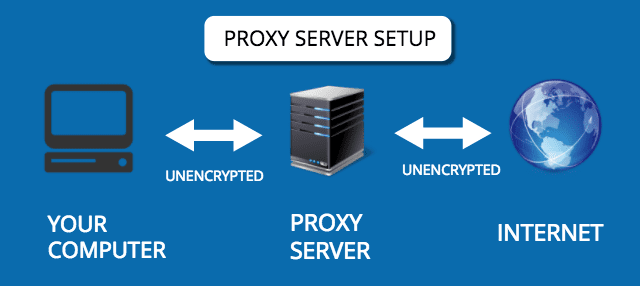In this digital era, the critical nature of online privacy and security cannot be overstated. As we engage more with the internet, from enjoying our beloved series to handling confidential matters, the threats linked to disclosing personal information have grown significantly. One effective tool that has emerged in response to these challenges is a proxy server. These tools can help users browse the web with increased anonymity, access geo-restricted content, and boost their entire web experience.
These proxy servers operate by acting as a bridge between individuals and online content, masking their IP addresses and routing traffic through different servers. This essential role provides a range of possibilities, from improving security against cyber threats to facilitating data scraping for market analysis. However, not all proxy servers are created equal, and with various types available, including HTTP, SOCKS proxies, and transparent types, understanding their unique characteristics is crucial. As we examine the growth of proxy servers, we will explore their benefits, potential risks, and how they can be leveraged for better online browsing and productivity.
Grasping Proxy Systems
Proxying systems serve as go-betweens between individuals and the web, directing inquiries from users to the targeted hosts. When a user sends a request for a page, it first passes through the intermediary, which then transmits it to the intended server. The designated host handles the request and delivers the content back to the intermediary, which in turn forwards it to the user. This procedure helps mask the user's IP address, providing a layer of anonymity.
There are different types of intermediaries, each serving distinct functions. https://omeka.net include HTTP relay, which are crafted for web traffic; SOCKS relay, which can manage any type of traffic; and transparent intermediaries, which don’t modify queries as they route them. Comprehending these differences is crucial when picking a proxy server for particular purposes, whether for internet security, security, or accessing region-locked material.
The application of proxy servers has surged due to their ability to enhance online privacy and safety. They can help shield users from likely risks by hiding their actual identities and coding information. As more people and companies look for improved means to secure their data, proxy servers are becoming an essential instrument in contemporary browsing, facilitating a safer and more flexible online encounter.
Advantages and Drawbacks of Proxy Servers
Using proxy servers delivers numerous benefits, particularly in improving online privacy and security. As browsing https://zenwriting.net/chiefleo86/discovering-the-power-of-proxy-solutions-a-detailed-guide through a proxy, users can mask their IP addresses, which makes it more challenging for websites and potential attackers to follow their online activities. This anonymity is particularly for individuals who prioritize their privacy or demand a secure connection while using public Wi-Fi networks. Moreover, many proxies offer further features such as screening content and blocking malicious sites, which contributes to a safer online experience.
Nonetheless, not all proxies are made equal, and there are inherent risks linked with their use. Free proxy servers are often flaky and may threaten users' security by recording their data or injecting ads into their traffic. Additionally, some proxies may be controlled by bad entities seeking to gather personal information. Users should be careful when selecting a proxy service, making sure they opt for reliable providers that emphasize security and privacy to reduce these risks.
Furthermore, though proxy servers can improve browsing speeds by saving frequently used content, they may also bring latency due to their directing processes. This can be a negative for users looking for optimal performance, particularly in activities that require low latency, such as online gaming or streaming. It's essential to weigh these potential negatives against the benefits to make educated decisions about proxy usage for both personal and professional needs.

Proxy Servers in Various Sectors
In the world of financial services, proxy servers play a crucial role in safeguarding confidential data. Financial organizations often utilize these servers to ensure safe transactions and protect customer information. By sending their internet traffic through a proxy server, investment firms can mask their IP addresses, lowering the risk of online attacks and boosting online security. Additionally, proxies allow these organizations to monitor and manage internal network usage, ensuring compliance with regulatory standards and reducing the threat of data breaches.
In the film and television industry, proxy servers provide significant benefits for content accessibility and data management. Online streaming platforms frequently implement proxy technology to overcome geo-restrictions and allow viewers around the globe to access a broader array of content. By employing proxies, production companies can effectively gather data on viewer preferences and streaming trends, helping them tailor their offerings. Furthermore, these servers can facilitate collaborative workflows among distributed teams by providing secure access to shared resources.
For companies involved in online marketing and market research, proxy servers are invaluable for strategic analysis and data scraping. Market analysts utilize proxy servers to anonymously collect data from rival sites, examine pricing structures, and track consumer behavior without revealing their identity. Omeka.net enhances strategic decision-making but also contributes in maintaining a competitive edge. Additionally, proxy servers permit businesses to conduct thorough market analysis without concern of IP bans, ensuring continuous data flow and consistent insights into sector developments.
